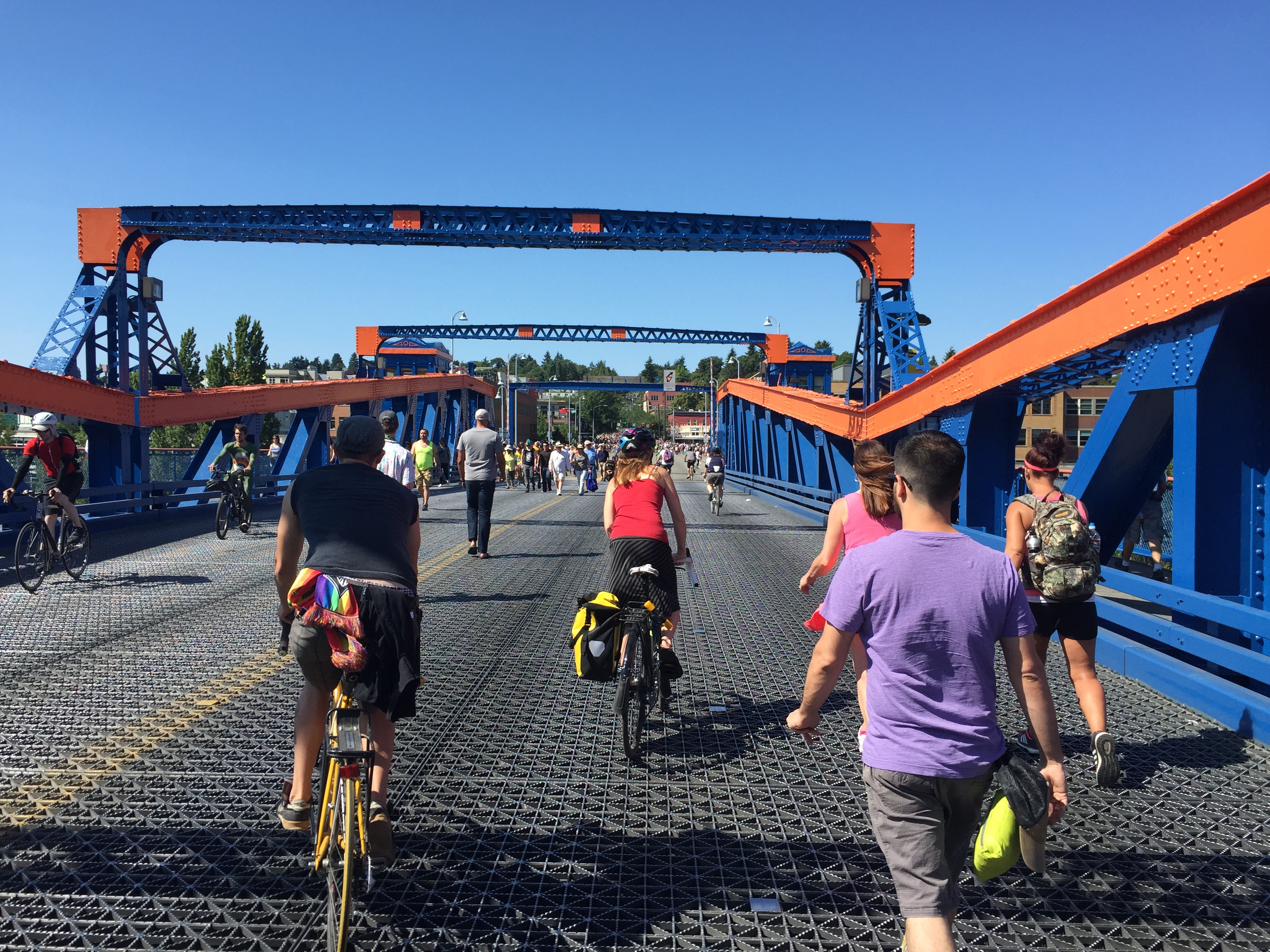#StepItUp: The Surgeon General issued a rare Call to Action this week to promote walking and walkable communities in order to curb chronic public health problems related to an ever worsening culture of sedentariness.
End the carnage: Ban right-turn-on-red in some locations in Seattle is a great start, but Seattle Bike Blog says that the City should go all the way and ban the practice everywhere.
For the kids: A circuit of streets (40 blocks) in the Central District will close today for a Summer Parkway.
Walk this way: Global architecture firm NBBJ pitches moving walkways for the London Underground, but there are practical issues that make it unlikely.
Free bird: Portland is taking a radically different approach to bikeshare without the bike station.
Not wanted: Some property owners are going out of their way to make people unwelcome in privately owned public spaces.
Seeking refuge: Where the Syrian refugees are likely to land for permanent settlement in the United States.
Home again: The solution to Seattle’s homelessness crisis may be staring us in the face.
No lag: What happened to demand when Milan suspended congestion charging.
By English design: Architects release impressive renderings of what a new Highspeed 2 concourse at London’s Euston Station might look like. A rural approach to urbanism through modern rowhouses. And, high quality prefabricated housing designed for homeless individuals in London.
About time: Seven “fun facts” about the 7 Line extension of the New York Subway.
No end in sight: Explosive housing growth is just getting started in South Lake Union.
Stop the madness: Richard Florida say that Americans should stop getting duped into publicly funding sports stadiums.
Housing corruption: Co-operative housing in New York City is at threat from investors.
Healthy choices: Forced walking by transit isn’t so bad if you consider it exercise.
Merciless privilege: Hit to kill is a thing in China and it’s disturbing.
A little love: Six ways to improve King Street Station.
Map of the Week: Mapping the difference between the minimum wage and cost of living.
Stephen is a professional urban planner in Puget Sound with a passion for sustainable, livable, and diverse cities. He is especially interested in how policies, regulations, and programs can promote positive outcomes for communities. With stints in great cities like Bellingham and Cork, Stephen currently lives in Seattle. He primarily covers land use and transportation issues and has been with The Urbanist since 2014.



